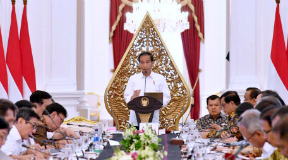
The word “stakeholder” is often used in various speeches and writings to show the attention of an organization/company to its social environment. What is the real meaning behind the term?
To understand the meaning of stakeholder, we must discuss it as a whole and conceptually, within the overall framework of the stakeholder management. Of course, what is meant is not the management of stakeholders by a company or organization, because that is impossible. What is managed is the relationship or interaction between the company and its stakeholders.
Before interacting, we must start by identifying who our stakeholders are, so that they are not mismanaged. The next step is sorting and mapping stakeholders into categories (stakeholder mapping). The interests or stake of each stakeholder are examined. The goal is that we can build engagement, including a communication strategy by paying attention to social factors.
Stakeholder engagement will not be meaningful if it is done in one direction. Therefore, it is important for companies to review the attitudes or views of stakeholders towards certain organizations or issues, not based on assumptions alone.
The existence of the company depends on the stakeholders. Shareholders are one of the primary stakeholders, but not the only ones. There are other stakeholders such as the community around the company’s location, employees, suppliers, creditors, customers, and the government. Without their support, the company cannot run.
In a further development, since about two decades ago, stakeholders have become the core of CSR implementation, because companies of any size cannot possibly be required to take care of welfare throughout the world. The international guideline for CSR activities is ISO 26000, and in Indonesia it has become part of the Indonesian National Standard issued by the National Standardization Body with the code SNI ISO 26000:2013. Its implementation is reported in the form of the Company’s Annual Report based on the GRI Standards.
Most Eligible
Professor Archie B. Carroll, a prominent figure in CSR theory, said that a stakeholder culture must exist in a company to develop stakeholder management. What is meant by this stakeholder culture is the practice, philosophy, and values in carrying out business management based on the understanding that shareholders are not the only important party in the company. This may be difficult for closed companies to accept. There are still many who think that the founders and shareholders are the most entitled to the company.
In Indonesia, listed or public companies may more easily accept stakeholder management principles. The Financial Services Authority and the Indonesia Stock Exchange require public companies to pay attention to the interests of stakeholders other than shareholders, and require the application of ISO 26000 to reporting on CSR activities based on the principle of stakeholder engagement.
Outside the implementation of CSR in a narrow sense, it seems that a deeper understanding is still needed that the scope of stakeholder management is very broad, namely as a practice and philosophy in managing the company as a whole. The six fields covered by ISO 26000 are Human Rights, Labor Practices, Environment, Honest and Fair Operating Practices, Consumer Interests, and finally Community Engagement and Development, which covers all aspects of running the company activities.
Noke Kiroyan
Chairman & Chief Consultant, Kiroyan Partners
This article has been published in PR Indonesia magazine 63rd edition, issued on June 2020, page 55.
Download the clipping here.



